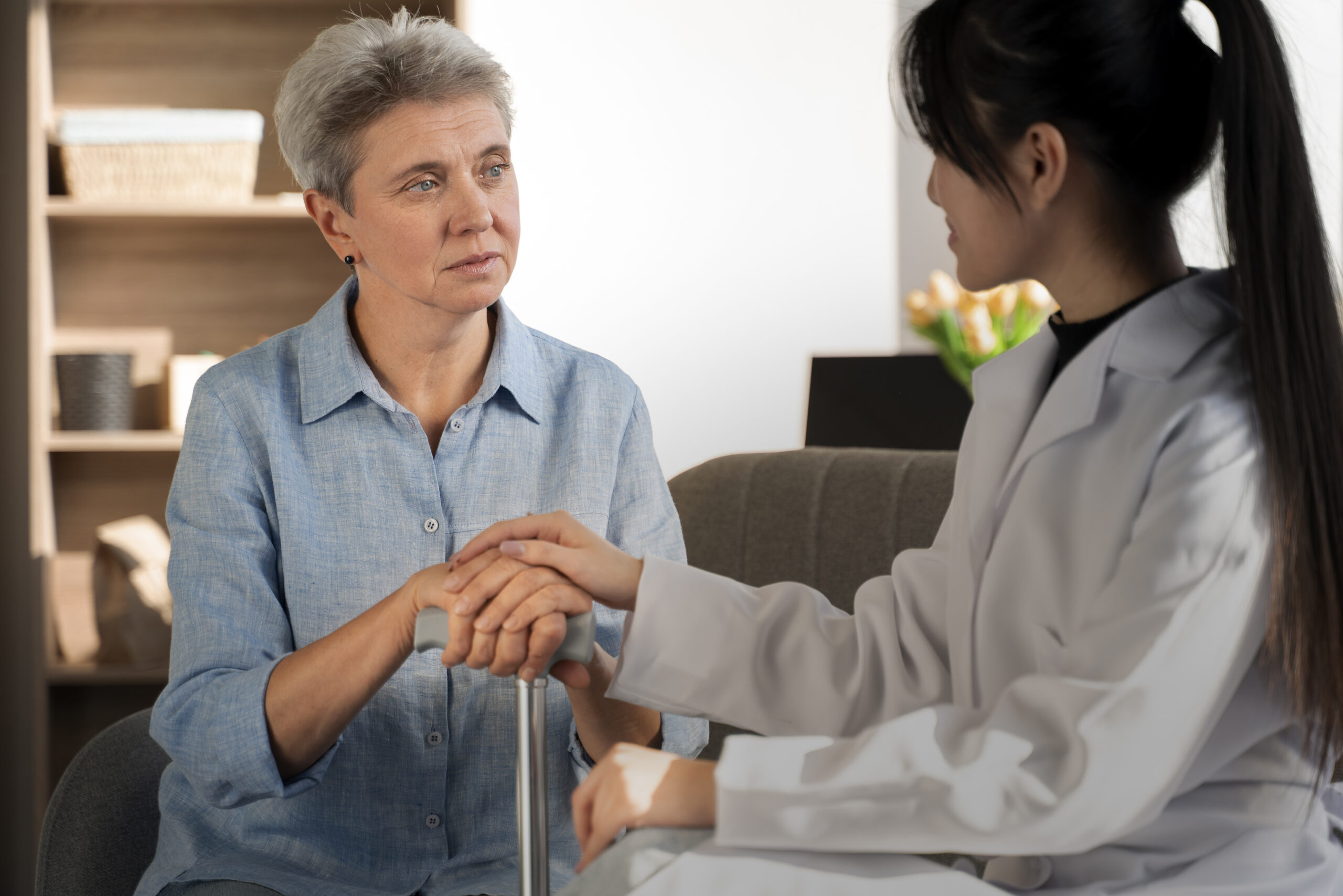Colonoscopy in Utah
What is a colonoscopy?
A colonoscopy is a medical procedure that involves the use of a long, flexible tube known as a “scope.” This scope is inserted into the rectum and navigated through the entire colon (large intestine). Equipped with a camera and light, it enables physicians to visually inspect the colon’s lining. Colonoscopies are typically conducted to diagnose causes of gastrointestinal symptoms like diarrhea, bleeding, abdominal pain, or unusual x-ray findings.
This procedure is essential for screening for colon cancer and polyps in patients who are asymptomatic but aged 45 or older, or earlier based on individual medical histories. Recognized as the sole strategy for colorectal cancer prevention, colonoscopies are performed by the board-certified gastroenterologists at Utah Gastroenterology. To learn more, please contact an office in Utah near you.

What are the benefits of a colonoscopy?
Colonoscopies are the cornerstone of prevention and early detection of colon cancer, making them critical for individuals over 45 or those at an increased risk for the disease. Regular screening through colonoscopies can provide numerous benefits to both gastrointestinal and overall health. Key advantages include:
- Early detection of signs of colon and rectal cancer
- Removal of abnormal growths before they become cancerous
- Identification of conditions such as diverticulosis and inflammatory bowel disease (IBD)
- Recognition as the most effective method for screening for cancers of the colon and rectum
- Potential to save lives through early intervention
Advancements in medical technology have made colonoscopy screenings quicker, more comfortable, and more precise than ever before.
What happens during a colonoscopy?
Prior to your colonoscopy, you will receive detailed preparation instructions from your physician at Utah Gastroenterology. It is crucial to adhere to these guidelines closely. The preparation typically involves consuming only clear liquids for the entire day before your procedure and using prescribed laxatives to ensure your colon is thoroughly cleansed.
Regarding medication, most patients will continue their regular regimen. However, those on specific medications such as blood thinners (like Coumadin, warfarin, Plavix, aspirin, or anti-inflammatories) or those who are diabetic may receive special instructions. You will be advised not to consume anything by mouth after midnight before your procedure, except for necessary medications.
On the day of your colonoscopy, you should arrive at your local Utah Gastroenterology endoscopy center 1 to 1.5 hours early. This time is used to complete any necessary paperwork and begin the pre-exam preparations. You will change into a medical gown, and an intravenous (IV) line will be inserted to administer sedation. Monitoring equipment will track your vital signs, such as heart rate, blood pressure, pulse, and oxygen levels, both during and after the procedure.
In the examination room, you will lie on your left side on the stretcher. Sedation will be administered gradually to ensure safety and comfort. Once sedated, the doctor will perform a rectal examination before carefully inserting the colonoscope into your rectum. The scope will be advanced through the colon to the small bowel junction, with air introduced to enhance visibility. Any residual fluids will be washed and suctioned away.
During the examination, the physician may perform various procedures such as taking biopsies, removing polyps, or managing any bleeding encountered. Excess air and fluids will be removed from the colon at the conclusion of the procedure. The entire process typically lasts between 15 to 30 minutes, depending on the findings.
When will I get my colonoscopy results?
Once your colonoscopy is completed, you will be escorted to the recovery area where you’ll be monitored as the effects of the sedation diminish. The speed of your recovery depends on the amount of sedative administered and how your body reacts to it, but typically, patients are alert and ready for discharge within 45 to 60 minutes.
Driving is prohibited for the remainder of the day, so you’ll need to arrange transportation home. You’re also advised to avoid working, signing important documents, or engaging in vigorous activities for the day. Although most patients can resume normal eating and drinking shortly after leaving the Endoscopy unit, specific guidelines about activities, diet, and medications will be provided before you leave.
Your physician or a nurse will discuss the initial findings with you post-procedure, although the sedative might impair your memory of the conversation. It is advisable to have someone with you who can also be briefed about the results. A written report will be provided to you at discharge, and any results from biopsies are typically communicated within a week.
Are there other options for a colonoscopy?
The alternatives available largely depend on the reasons for considering a colonoscopy. Generally, a colonoscopy is the most effective method for both diagnosing and treating issues within the colon and is the only preventive measure against colorectal cancer. However, other diagnostic tools such as a barium enema and virtual CT scan can assess the colon but do not allow for treatment. Any detected abnormalities typically require either a follow-up colonoscopy or surgical intervention for treatment.
Are there any risks with a colonoscopy?
Colonoscopy is generally a very safe procedure with complications occurring in less than 1% of cases, and these are rarely life-threatening. Before the exam, patients will review and sign a consent form with the nursing staff, providing an opportunity to discuss any concerns with your physician.
Possible complications include reactions to the sedation, such as allergic reactions, respiratory difficulties, cardiovascular effects, and irritation at the injection site.
Bleeding might occur during biopsies or polyp removal but significant bleeding that requires blood transfusion or hospitalization is extremely rare. Bleeding could manifest immediately during the procedure or up to two weeks afterward if a polyp was removed.
Another potential complication is perforation of the colon, which could be identified during the exam or might only become evident later. Such perforations typically necessitate surgical intervention and hospitalization, though this is also an uncommon occurrence.
It’s crucial to contact your physician immediately if you experience worsening abdominal pain, bleeding, or fever after the procedure.
While colonoscopies are highly effective, no test is infallible. There is a small inherent risk that some abnormalities, such as polyps or cancers, might be missed during the exam. Continuous follow-up with your Utah Gastroenterology doctor is essential, and you should report any new or persistent symptoms.
Colonoscopy FAQs
By what age is it suggested to have your first colonoscopy exam?
We recommend individuals at regular risk of getting colon cancer begin scheduling their colon cancer screening when they turn 45. However, if your chances of colon cancer are higher or if you are showing indicators of colon cancer, your GI specialist might suggest getting a colonoscopy even before that age.
How many years apart is it suggested you have colonoscopies?
Gastroenterologists advise getting a colonoscopy screening every decade for those of general risk, who are of good health, and who have normal colonoscopy results. Following your exam, your GI doctor will inform you how many years apart you should request colonoscopy screenings from here on out.
Is a colonoscopy a painful process?
Sedation is given to you ahead of your colonoscopy exam to ensure you remain comfortable during your exam. Depending on the type of sedation given, many patients experience an extremely relaxed state or become tired, and many experience little-to-no memory of what happened. Don’t hesitate to talk with your colonoscopy doctor about what to anticipate at your consultation.
What is recovery for a colonoscopy exam?
On average, patients need around 24 hours to recuperate following a colonoscopy screening, and a number of patients are well enough to resume their regular activities the subsequent day. If polyps are identified and removed, recovery may take about a week. It is not uncommon for you to have some gastric symptoms after your colonoscopy exam, like bloating and cramping. Our Salt Lake City, UT area gastroenterologists will go over further details on what you can expect during your recovery.
